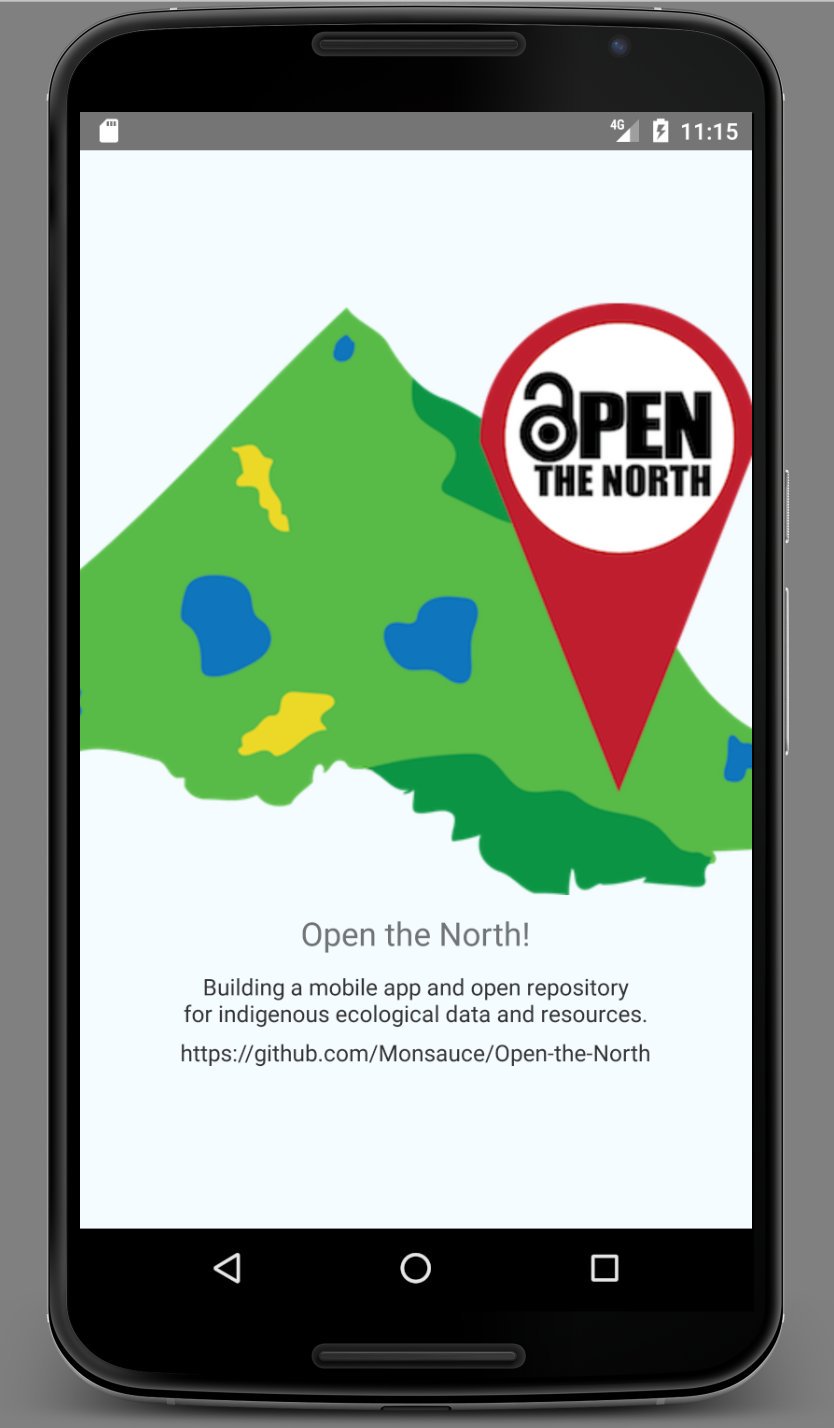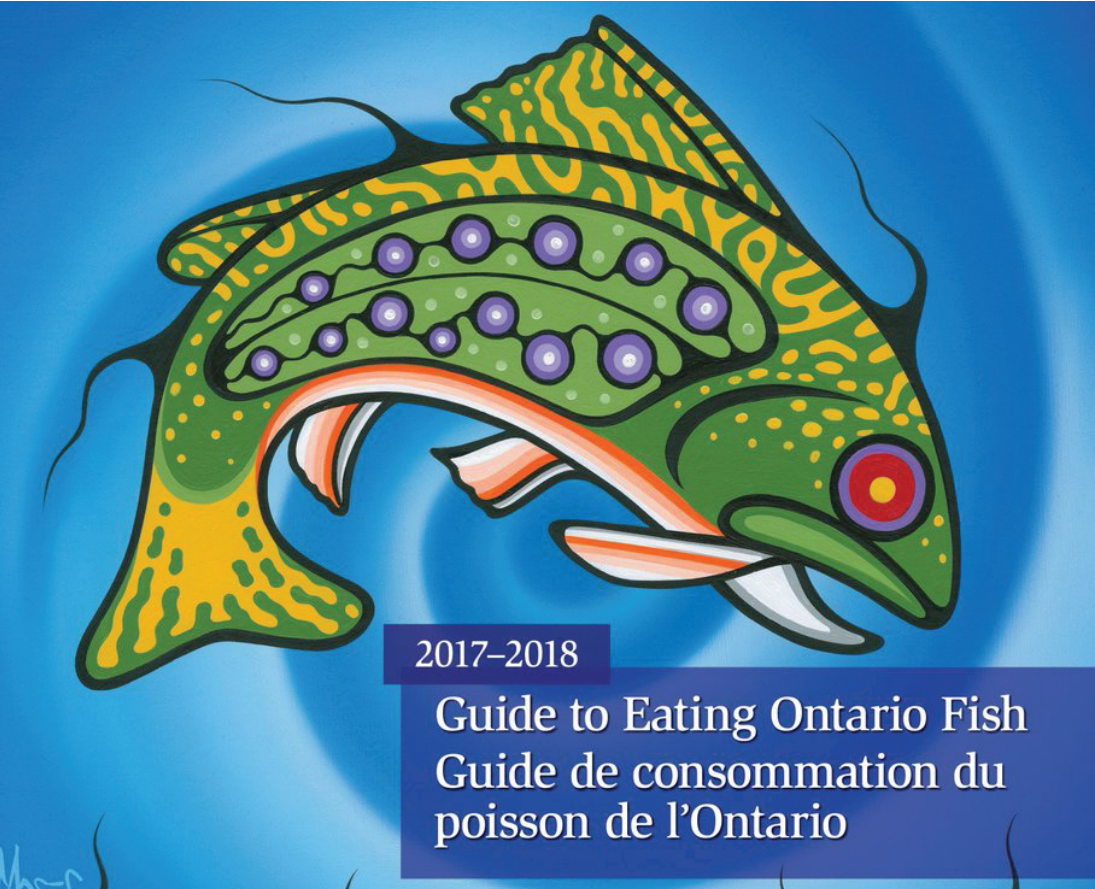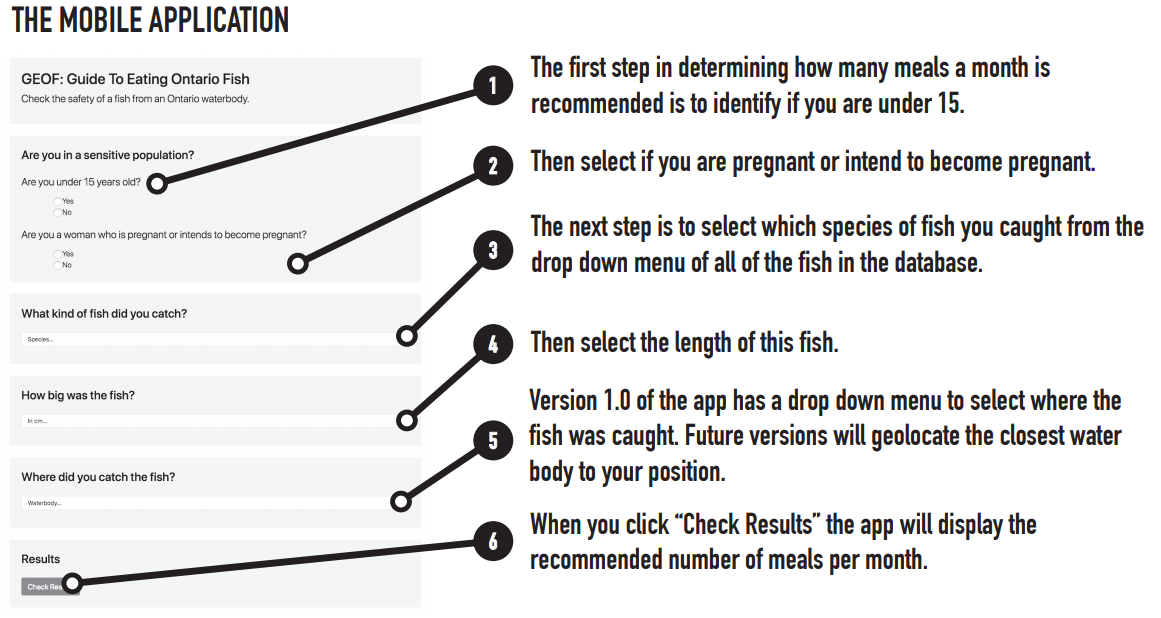Guide to Eating Ontario Fish (GEOF) App
Mobile Computing For Remote Communities

Communicating Health Risks
Various forms of contamination (e.g. mercury) make consuming large amounts of fish from lakes in Northern Ontario potentially harmful. Indigenous communities, which contain large numbers of food-insecure people, are disproportionately affected, as they rely on fish as a key food source. Northern communities also face unique technical challenges, since Internet service and mobile data plans are much more costly than in the rest of Canada, and download speeds are very slow.
Current government guidelines provide valuable information, but are presented in an information-dense tabular format that is difficult for users to understand and navigate. In addition, the online version of the guidelines integrates several components (such as interactive maps) that have high data transfer overhead, making them difficult for Northern residents to use.
I worked with two post-doctoral researchers in wildlife ecology to develop an alpha version of a web application to remedy some of the issues with the existing interface. I was the only programmer on the project. The application was presented to environmental scientists and Indigenous groups at the Up North On Climate conference at Laurentian University, and the project leader used our design to convince the Wildlife Conservation Society to fund a developer team to create a full version of the application.
Contributions: Analysis of Design Requirements, Implementation. To get involved with this project, please contact Dr. Monica Granados.
 Go to portfolio.
Go to portfolio.
